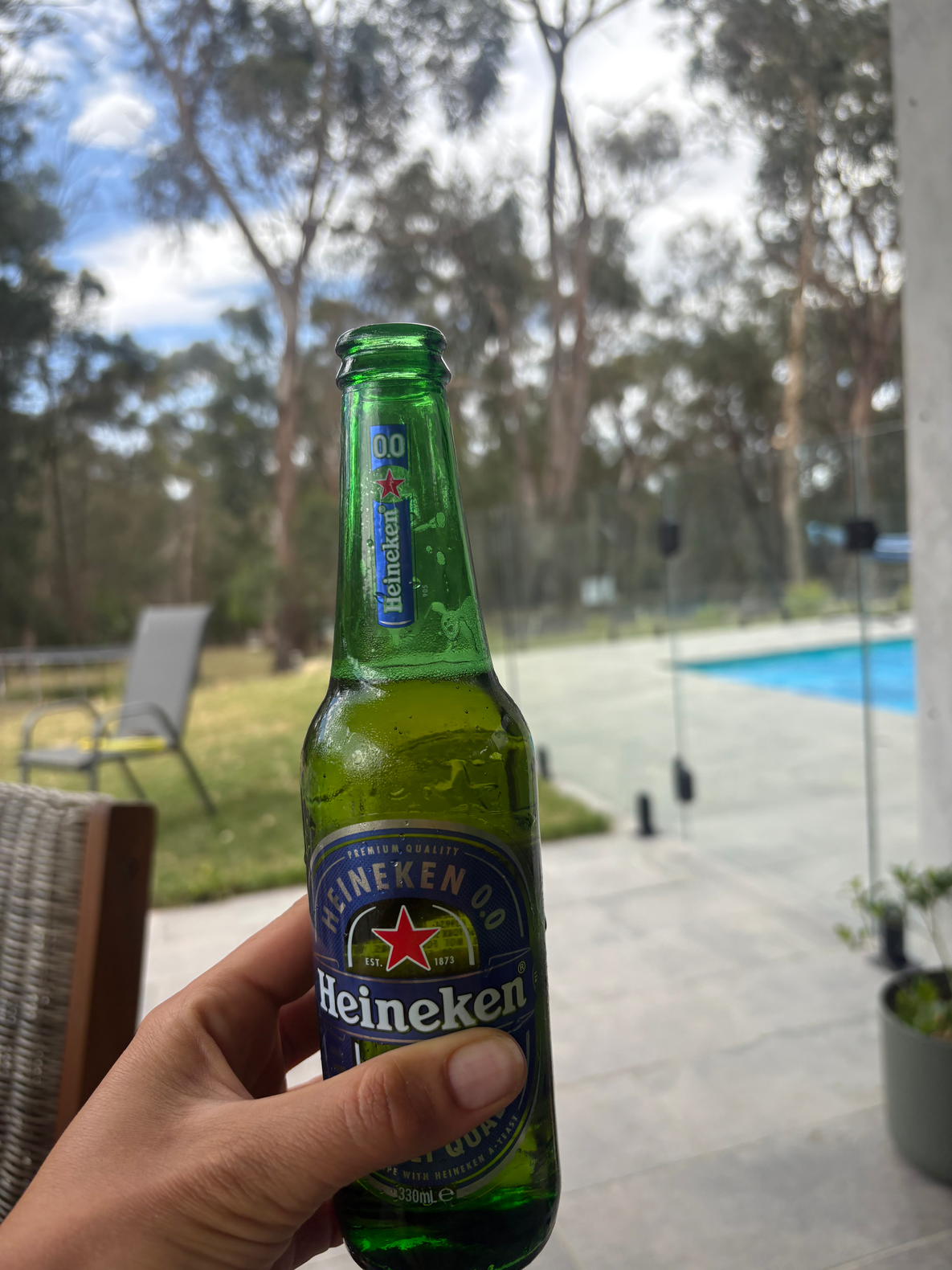10 Motivating Reasons To Cut Back On Alcohol

It’s not about restriction — it’s about reclaiming your energy, clarity, and control
You don’t have to be a heavy drinker for alcohol to impact your health. Even small, regular amounts can have sneaky effects on your mood, motivation, and body function — some of which you might not even realise are linked. If you’ve been feeling a bit “off” and wondering why, here are 10 solid, motivating reasons to take a break or simply cut back.
1. Alcohol Is a Depressant — and It Doesn’t Leave Quickly
Alcohol isn’t just something that “relaxes” you. It’s a central nervous system depressant, meaning it literally slows down your brain and body function — not just while you're drinking, but while your body is still metabolising it, which can take up to 25 hours. That means reduced physical and mental performance long after the fun ends.
2. It’s Full of Hidden Sugars (Especially Maltose)
Most people don’t realise how sugary alcohol can be — not just sweet cocktails, but beer and wine too. Maltose, a type of sugar found in fermented drinks like beer, spikes blood sugar levels and can lead to cravings and energy crashes, especially when you’re drinking regularly.
3. It Feels Relaxing — But Fuels Anxiety Later
Alcohol initially increases dopamine, which makes you feel good — but then your body overcorrects. It suppresses GABA and spikes cortisol (your stress hormone) once the buzz wears off. This rebound effect can leave you feeling anxious, jittery, and emotionally flat for 1–3 days after drinking.
4. It Crushes Motivation
Ever noticed how hard it is to feel inspired after a few drinks — or even the day after a couple of wines? Alcohol reduces dopamine sensitivity over time, affecting your ability to feel motivated, focused, or excited about things that usually light you up.
5. You’ll Crave Carbs, Salt, and Fat (and Then Crash)
Alcohol stimulates appetite and interferes with your body's hunger signals. Combine that with lowered inhibition, and you’re way more likely to reach for salty, fatty, or carb-heavy foods — then feel sluggish, bloated, or regretful later.
6. It Dehydrates You at a Cellular Level and Accelerates Aging — Inside and Out
Alcohol is a diuretic — it draws water out of your body and cells. This slows every cellular process down, making your skin look tired, your digestion sluggish, and your brain feel foggy. Dehydration, inflammation, disrupted sleep, and reduced nutrient absorption all add up. Over time, regular drinking increases oxidative stress, affects hormone balance, and contributes to faster aging of the skin, joints, and organs.
7. Heavily Linked to Cancer
Alcohol consumption is strongly linked to several types of cancer, including breast, liver, and colorectal cancer. For detailed information, see the Cancer Council’s alcohol and cancer facts.
8. It Becomes a Habit — Not a Choice
When alcohol becomes part of your routine (Friday wind-down, awkward social events, emotional pick-me-up), you can start to lean on it without realising. That habitual link makes it harder to say no — even when you don’t actually feel like drinking.
9. It Impacts All Body Systems
Alcohol affects everything: digestion, hormone function, immune response, nutrient absorption, blood sugar regulation, and sleep. While you might not feel the full impact immediately, it chips away at your baseline health over time.
10. It Affects Your Sleep Quality
Although alcohol can make you feel like you fall asleep faster, it actually disrupts deep, restorative sleep cycles. This leads to poorer sleep quality and feeling tired the next day, which can impact your mood, focus, and energy levels.
Many people discover that cutting back actually increases their confidence — especially in social settings. You’re more present, clear-headed, and authentic when you’re not relying on alcohol to loosen up or numb how you're really feeling. Not to mention, you’ll save money you can actually put towards your health and fitness.
✨ Cutting Back Isn’t About Being Perfect
It’s about checking in with yourself. If drinking is taking more than it’s giving, it might be time to experiment with less.
Notice how your body responds. Watch your sleep, mood, energy, and skin.
The shifts can be subtle at first — and then suddenly, so worth it.